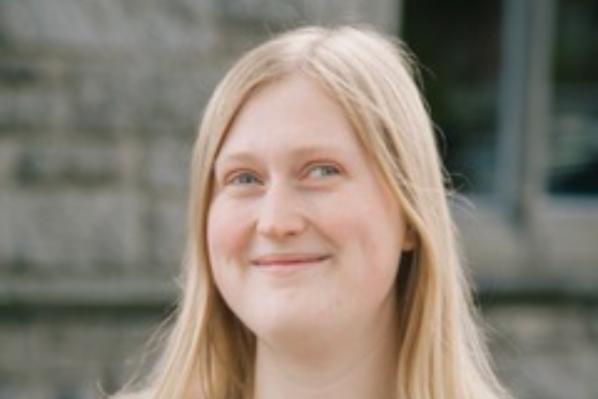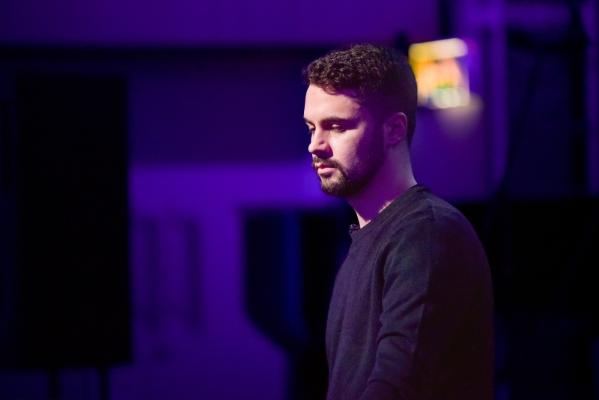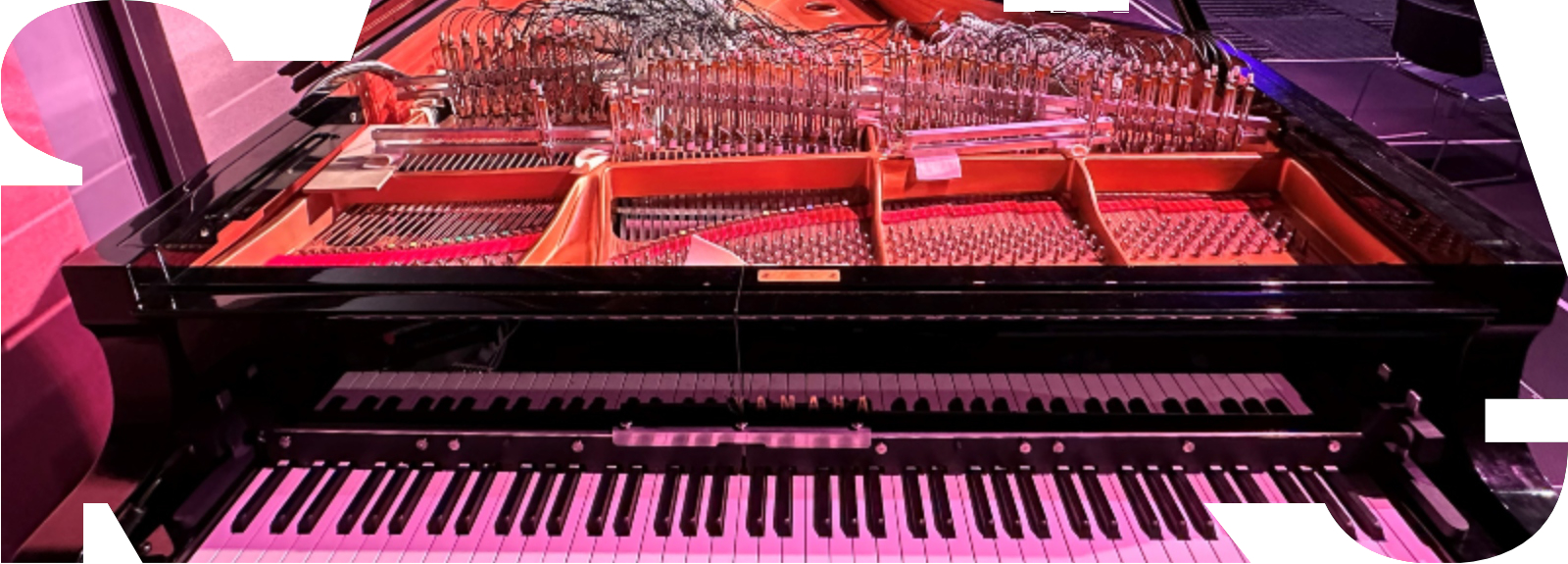PhD/MA Programmes
SARC: Centre for Interdisciplinary Research in Sound and Music is established as a broad research environment supporting work in all areas of sound and music. The PhD and MRes programmes range from thesis focused to creative practice portfolio, with options for hybrid models combining practice and theory. Areas of research include: historical and critical musicology, sound studies, composition, socially engaged arts, performance studies, improvisation, interaction design, instrument design, audio signal processing, immersive sound and psychoacoustics.
SARC membership includes over forty academics from across various Schools in the University including the School of Arts English and Languages, School of Psychology, School of Social Sciences, Education and Social Work, School of History, Anthropology, Philosophy and Politics and the School of Natural and Built Environment. As a dynamic and international community of researchers, SARC hosts regular events with invited scholars, researchers and artists. The postgraduate cohort is core to the research culture and includes over thirty students from various backgrounds and nationalities.
The SARC postgraduate community is a vibrant multidisciplinary group which supports both individual and team-based collaborative research. The SARC PhD Lead role has been established to ensure the PhD voice is present as we plan activities and strategy for the future. The PhD Lead is a member of the SARC Steering Committee and plays a key role in highlighting research opportunities and curating events with invited researchers and artists. Weekly concert and seminar series provides an opportunity to engage with a broad range of research in sound and music as well as network building. Research interest groups invite students to informal discussions around specific topics and open opportunities for collaboration.
Students have ample opportunities to share their ongoing work both informally and through events like the SARC Members Symposium. A number of opportunities for showcasing research take place in the context of the NI Science Festival, Sonorities Festival Belfast as well as events organised by Queen’s Graduate School. Students are able to access funds to travel to relevant conferences and festivals throughout their study.
SARC launches the Douglas C Harrison PhD studentship
The Douglas C Harrison PhD studentship offers full funding valued in line with DfE Stipend (£19,237 for 24/25) and Queen's University Belfast PG Research Fees (£5,006 for NI Home, ROI and GB) for the duration of three years, commencing in October 2026.
All eligible students who have applied through the QUB portal for Full Time PhD in any area of Sound and Music research by Tuesday 13 January 2026, will be automatically considered for this award. International/EU outside of ROI applicants are eligible though must demonstrate they are able to finance £15,494 to cover full international fees (£20,500). No late applications will be considered.
This studentship is highly competitive and will be awarded based on the quality of the candidate's CV, research proposal and fit to the SARC research environment. Applicants are highly encouraged to contact potential supervisors prior to making an application - please visit the SARC Research Staff page or use Queen’s Find a Supervisor.
Please note exact figures are subject to change. For further information please contact sarc@qub.ac.uk
Other funding opportunities include DfE - Department for the Economy, NINE DTP and Landscape Awards - AHRC.

Doing a PhD at SARC is an opportunity to push the boundaries of sonic practice and research in a vibrant and welcoming environment, with access to outstanding facilities, rich interdisciplinary connections, and supportive mentorship. I think it unlikely that my project would have evolved in this way had I conducted it anywhere else. SARC pushed me into new areas of thought and practice, continually opened opportunities to enrich and advance my work, and supported me the entire way. 10/10, would go again. Lara Weaver
PhD

At SARC, you'll have access to facilities and resources that can help you grow as a researcher. Hosting multiple yearly events with researchers, industry professionals, and artists which help guide student research and artistic practices. Most importantly, the collaborative and engaged research community at SARC provides students with a wealth of experiences to draw upon as they pursue their education. It is a shared space of knowledge, leading to open discussions about ideas, projects, and research. Georgios Varoutsos
PhD
Entry Requirements
A 2.1 Honours degree or equivalent qualification acceptable to the University. While a Master’s degree (or equivalent qualification acceptable to the University) is not essential, it is desirable and applicants without this qualification will be considered on a case-by-case basis.
For international students, evidence of an IELTS* score of 6.5, with not less than 5.5 in any component, or an equivalent qualification acceptable to the University is required.
Application Process
The University has launched the Queen's Portal and Postgraduate applications should be submitted via the new application portal. You will be asked to submit your CV, details of your qualifications, reference letters and a research proposal. If your project includes practice, examples of previous work are required and should be made available online. Please include links to a selection of 3-5 works and describe how these relate to your proposed project.
For further information please visit the QUB PhD Application Process.
PhD Studentship - Re-Sounding Identities
A fully funded PhD exploring VR Music Making & Storytelling with Asylum-Seeking Communities in Northern Ireland, particularly young women and girls. The project investigates how immersive technologies can foster inclusion, belonging, and skills development for marginalised groups facing displacement, gender inequalities, and cultural invisibility. Further information and to apply. Closing date 30 January 2026.
PhD Studentship – Numerical Modelling and Nonlinear Control of Bowed Strings
SARC | EPIC, Queen's University Belfast
The School of Electronics, Electrical Engineering and Computer Science is offering a fully funded, full-time, three-year PhD studentship on Numerical Modelling and Nonlinear Control of Bowed Strings to start in October 2026. In addition to local students under DFE rules, the School will consider international applicants for award of this PhD funding, with allocations determined via an internal ranking process.
Applications by holders of a first degree in a relevant subject will have a higher chance of securing funding. Further project details, including application link, can be found at www.qub.ac.uk/courses/postgraduate-research/phd-opportunities/numerical-modelling-and-nonlinear-control-of-bowed-strings. For any queries, please contact Dr Maarten van Walstijn m.vanwalstijn@qub.ac.uk. Closing date 16 February 2026
The MA in Sound and Music allows for specialised study in diverse music disciplines including composition, instrument design, musicology, performance and recording, while bringing together students across these areas (and more) to explore a broad range of topics through collaboration and individual research. The ethos of the course is based on the understanding that the practice and study of music is necessarily social, and that advancements in music inform, and are informed by, wider cultural, critical and technical practices. This course aims to connect students in adjacent subjects through access to elective modules from outside Music, as well as via participation in research seminars, ensembles, workshops, concerts and festivals delivered by SARC, QUB’s internationally-recognised centre for interdisciplinary research in sound and music.

